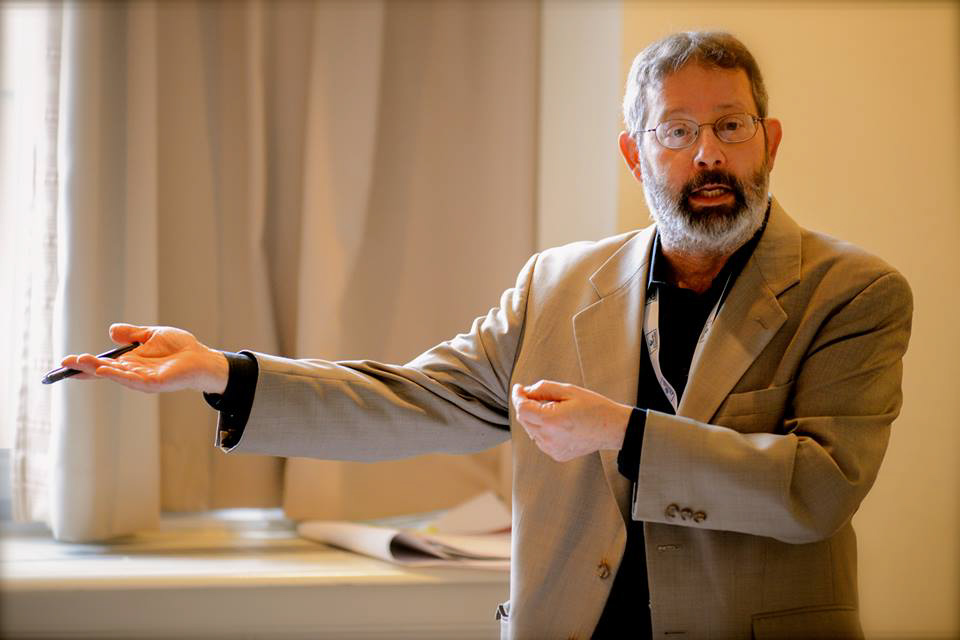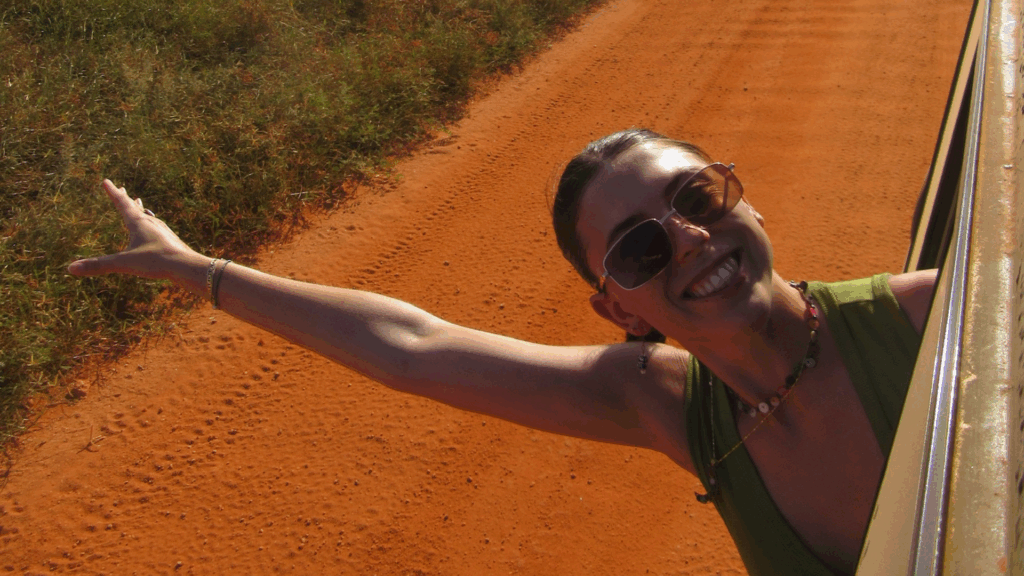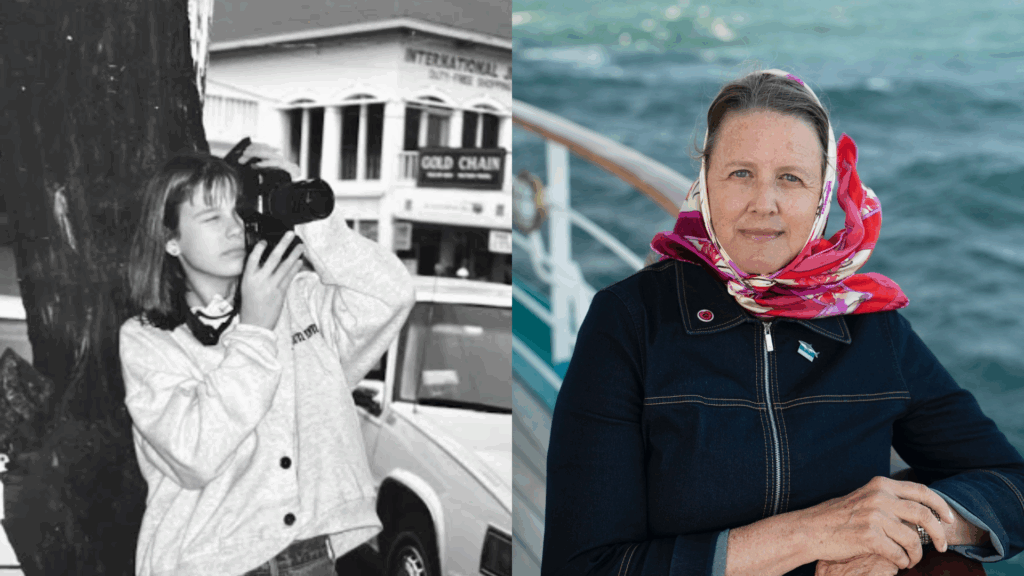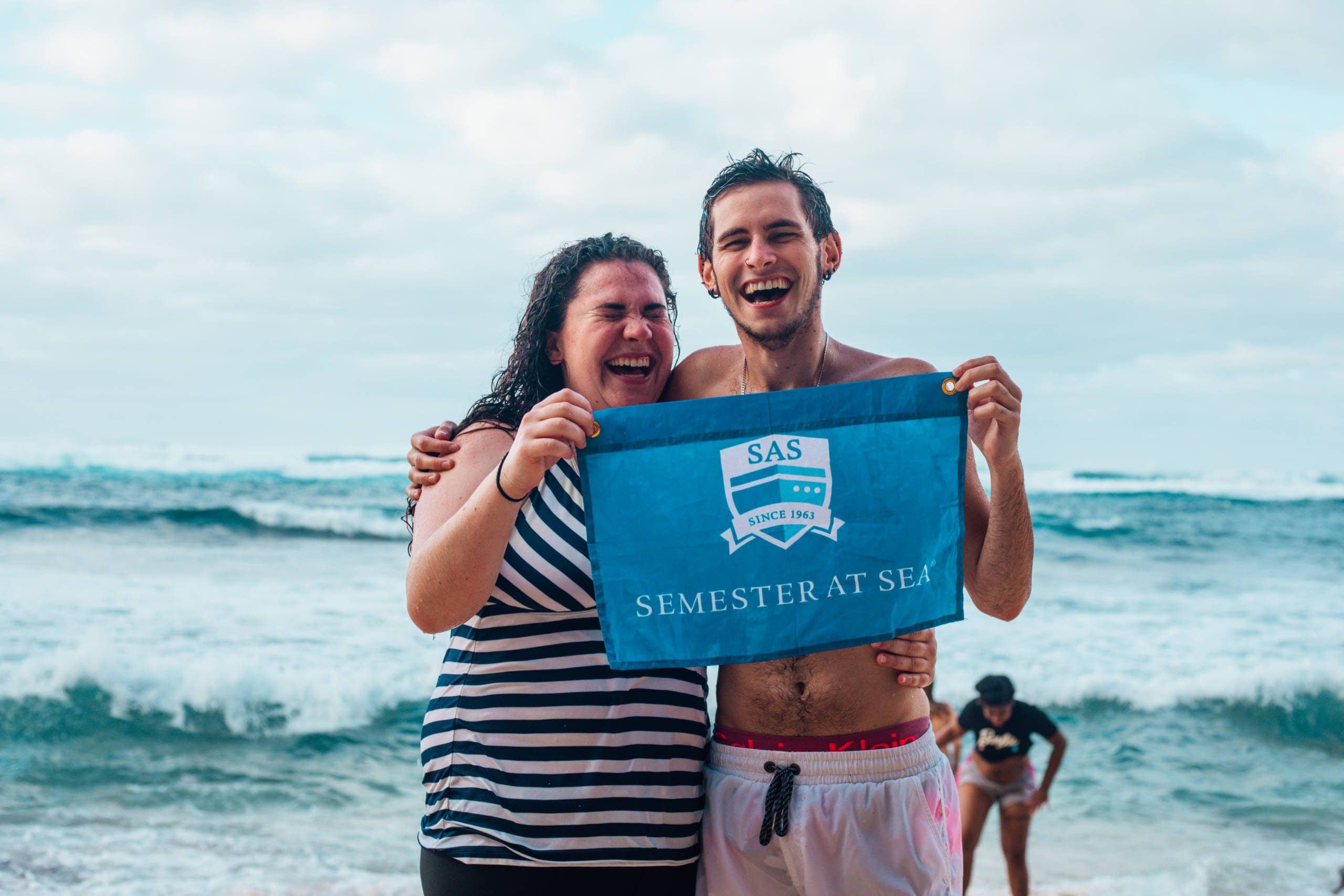
Throughout the voyage, faculty members, staff, and students have learned about the global effects of poor fishing practices, plastic use, pollution, and negligent environmental practices around the world. Near the end of their 100-plus day journey around the globe, voyagers were finally able to visualize how all the sustainability pieces fit together as they picked up pieces of micro-plastic on a beach at the James Campbell Wildlife Refuge in Hawaii as part of their final field program of the Fall 2018 Voyage.
“There’s just so much more waste that I’ve noticed just living in this island and in the U.S. than anywhere else in the world,” said Danielle Fernandez, a student attending the University of Hawaii-Manoa. “In China and Japan, they were really cautious about keeping garbage off the street, and in Japan there weren’t any garbage cans anywhere that I could see, so I think people there just care more about keeping their land clean.”
The concept of taking care of the land, or Malama ka ‘aina, is engrained in the culture of Hawaii, and the underlying mission of Sustainable Coastlines, a non-profit organization that led the beach cleanup for Fall Voyagers as part of a new partnership with Semester at Sea.
“The biggest goal for Sustainable Coastlines is not to clean up but to educate people about the stuff that we find and how we can all change what we use in our everyday lives to make a difference,” said Rebecca Mattos, Operations Manager for Sustainable Coastlines. “Especially the stuff we find here in Hawaii, it’s a little bit different from the mainland because a lot of it comes from commercial fishing. We have a huge demand for cheap seafood all over the world, that compared with lighter regulations of the fishing industry results in a lot of that stuff washing up here.”
Case studies of good and bad sustainability practices were acknowledged in the different cultures around the world, but the discussions always circled back to what voyagers can do in their own lives to help change the culture of plastic use and poor recycling practices. The hands-on experience voyagers had in Hawaii helped solidify how individuals can make a change that has an impact all over the world.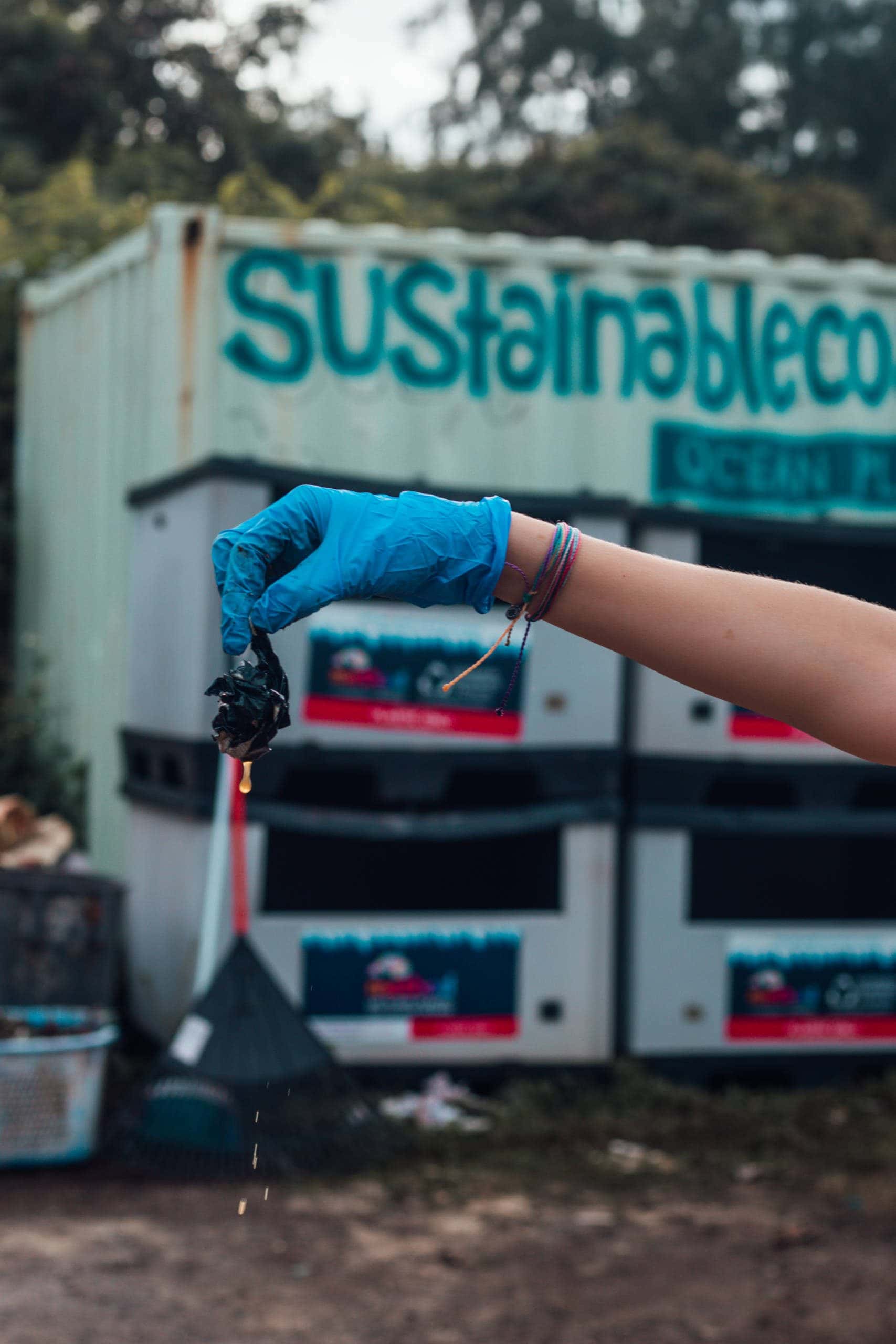
Contributing to those discussions with voyagers was Kristen Hofer, a Semester at Sea Spring 2016 alumnus who just happened to be volunteering with Sustainability Coastlines alongside Fall 2018 Voyagers.
“When you look at these plastics and think about your day-to-day life, you use so much plastic and so much of it is unnecessary, like water bottles and straws. When you throw things away it doesn’t go away, it doesn’t disappear forever, it could up somewhere like this,” Hofer said.
Educating voyagers on ways to give back to the very ocean they sailed on has become such a wide-spread topic that the SAStainability club was formed on-ship to help promote sustainability efforts.
“My life is centered around the ocean, it has helped me through hard times and has made me purely happy,” said Evin Rose, leader of SAStainability Club. “Being a part of Sustainable Coastlines and doing your part to make a difference is one of the most amazing things you could do, especially in Hawaii.”
Through global education, understanding sustainability inside and outside the classroom in each country, and finishing up the voyage with Semester at Sea’s new partnership with Sustainable Coastlines, the hope is that voyagers will continue to practice what they’ve learned over the course of the voyage when they return to their land-based institutions.
